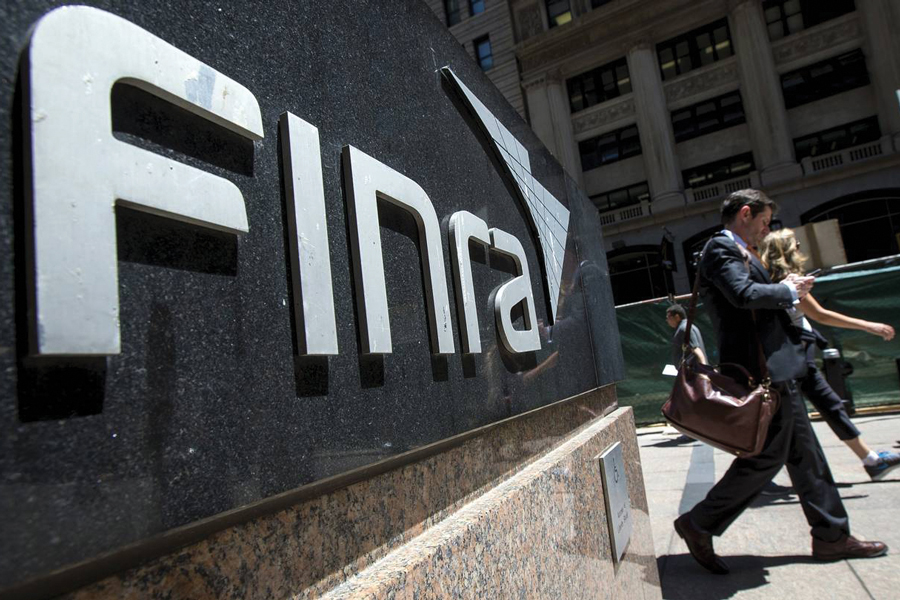

The Financial Industry Regulatory Authority Inc. closed the year with substantial, multimillion-dollar penalties against two prominent firms, LPL Financial and Interactive Brokers.
On Dec. 27, LPL and Finra reached a $6.15 million settlement over the firm falling short on its supervision of thousands of transactions that its financial advisors and brokers completed from 2012 to 2019 with product sponsors such as a mutual fund company. In industry parlance, these transactions are known as "direct" business.
With more than 21,000 financial advisors using its platform, LPL agreed to pay a fine of $5.5 million and restitution of $651,000 to clients to settle the matter. LPL agreed to the settlement without admitting to or denying Finra's findings.
Earlier, on Dec. 22, Finra and Interactive Brokers, which specializes in equities and options trading, agreed to a $3.5 million fine for failing to comply on best execution and supervision standards from 2014 through last year. Interactive Brokers reached the settlement without admitting to or denying Finra's findings.
“Importantly, there are no allegations or findings by Finra in its settlement order that [Interactive Brokers’} smart order routing logic caused customer harm or failed to provide best execution to our customers,” a company spokesperson wrote in an email. “In fact, after testing and review, [Interactive Brokers] concluded that no changes needed to or should be made to the firm’s smart order routing logic as a result of Finra’s findings.”
Finra has a history of signing off on large fines and settlements as the end of the year approaches, and in some cases that decision may be driven by the firm it is dealing with.
"Sometimes, these settlements occur because it’s the end of the year and firms want to simply close the case out," said one industry attorney who asked not to be identified because of the firm's involved in the settlements. "This LPL case is a grab bag. It looks like the product of a whole bunch of unrelated matters that LPL may be trying to resolve."
In the past, LPL has paid large fines to settle compliance issues with Finra and state regulators. In 2014 and 2015 alone, the firm paid $70 million in fines and restitution to customers, a staggering sum for a retail-focused broker-dealer. More recently, Finra fined LPL $3 million last year for falling down on its oversight of two financial advisors who pocketed $2.4 million from 13 clients, mostly senior citizens.
"LPL takes its compliance obligations seriously and fully cooperated with the Finra investigation, including self-reporting certain identified issues," a company spokesperson wrote in an email. "LPL is pleased to have resolved these matters."
"LPL did not take steps reasonably designed to ensure that its representatives reported such [direct] transactions on the trade blotter the firm used to identify potential sales practice violations, resulting in approximately 830,000 such transaction not appearing on the blotter," according to Finra. "The firm did not supervise these transactions since it did not generate exception reports from these transactions to identify potential sales practice violations, including potentially unsuitable transactions."
Finra also cited LPL for sending more than 11,000 clients inaccurate information from 2016 to 2020 about charges incurred when "switching" securities, a common practice. Finally, from 2017 to 2022, LPL also fell short in its supervision of recommendations of traded business development companies, a popular alternative investment, according to Finra.

The 25-year industry veteran previously in charge of the Wall Street bank's advisor recruitment efforts is now fulfilling a similar role at a rival firm.

Former Northwestern Mutual advisors join firm for independence.

Executives from LPL Financial, Cresset Partners hired for key roles.

Geopolitical tension has been managed well by the markets.

December cut is still a possiblity.
Streamline your outreach with Aidentified's AI-driven solutions
This season’s market volatility: Positioning for rate relief, income growth and the AI rebound
